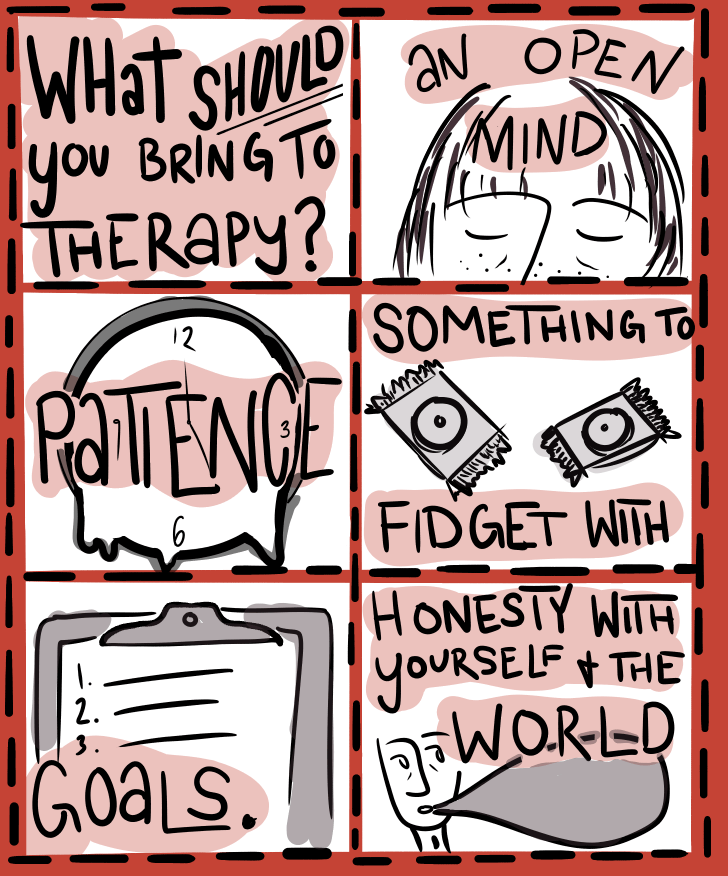Mental health is key for college students
When I was 15, I went to therapy for the first time. The office was small, located beneath a large architecture firm, and I was intimidated. There were mints, the Lifesaver kind that I’ve since found at every therapy or psychiatric practice I’ve been to, and I grabbed a few and stuffed them into my pockets. I didn’t talk about going to therapy outside of the sessions, and instead kept it hidden as though it were some shameful weekly ritual.
Since then, I’ve continued to impulsively stuff mints into my pockets at therapy sessions. But I’ve found that the culture around therapy on Guilford’s campus is generally more accepting than that of a public high school in South Carolina. There’s still a lot of internalized resistance to therapy, however. Many of us still have this idea that we must reach a breaking point to go to therapy.
Therapy isn’t a Band-Aid for mental health. You don’t go in, lay on the couch and get diagnosed with some Freudian illness. Sometimes I sit on the couch with my legs crossed on the cushions, but that’s the closest I’ve gotten to the traditional image of the patient lying on the couch.
Instead of a Band-Aid, therapy works like first aid training for your mental health. Your therapist can help you find tools to manage your symptoms, give you tactics and techniques to change your thought patterns. For me, therapy has taught me how to better manage my emotions, how to let myself heal when I’m hurt. It’s a chance for self-reflection and self-care.
Here at Guilford, we have free counseling services. While therapy can be a financial burden outside of school, here, we can go free of charge. You can get a screening and get short-term counseling, as well as psychiatric appointments. If it even crosses your mind that therapy might be helpful in some way, take advantage of this opportunity, this chance to get free mental health services.
The Counseling Center is a resource, just as the reference desk at the library is a resource for papers, or the career services office is a resource for internships and jobs. College is hard and mentally taxing. We should include self-care as a part of our personal educations.
One of the reasons I often hear for students not taking advantage of the service is that there are a limited number of appointments, and they don’t feel they are “depressed enough” or desperate enough for therapy.
To this I respond to Guilford directly. If the need is present, and at any college I believe it is, we should be funding mental health and expanding the program if necessary. The College should consider having a counselor for the Early College at Guilford students, who are placed under a different level and type of stress as high school students attending college.
I’d encourage any student interested in therapy to give it a chance. Make an appointment and try. You don’t need to be worried about doing therapy “right.” You bring yourself, and you bring your thoughts. Try to bring your words, but it’s okay if you can’t articulate exactly what is wrong or bothering you.
If one of our core values here at Guilford is excellence, that should include excellence in mental health care. We should care for ourselves as people and as students. We need to educate ourselves fully on the world around us, but we must also consider the world within ourselves.









